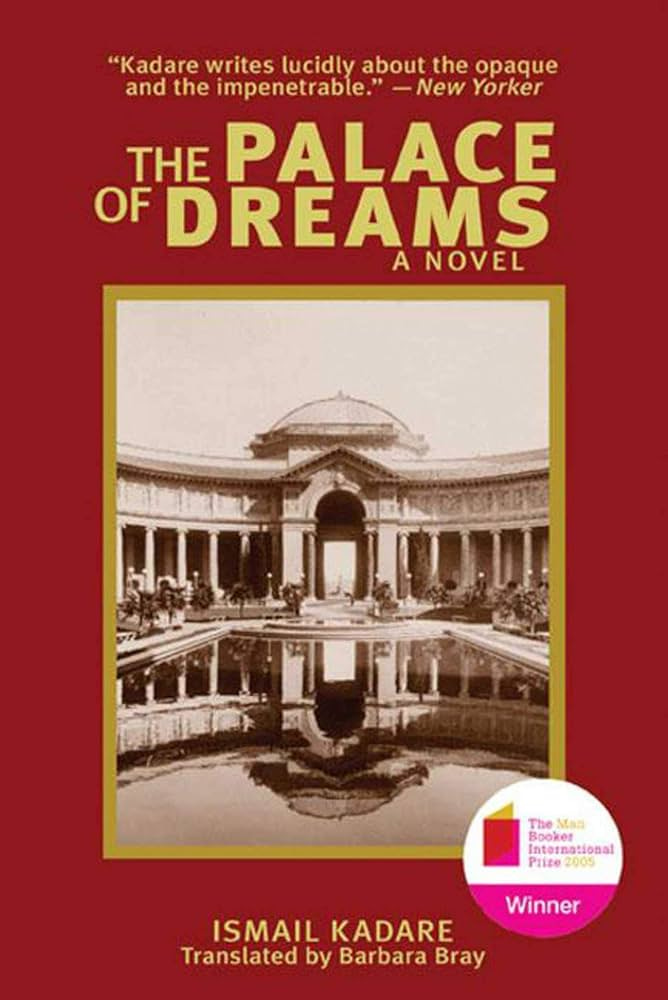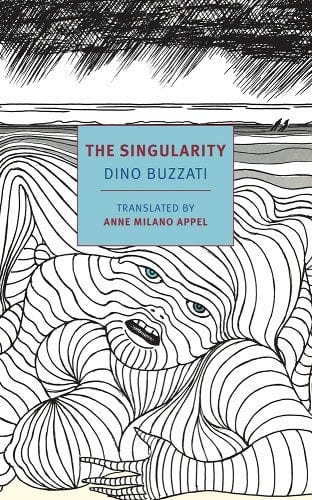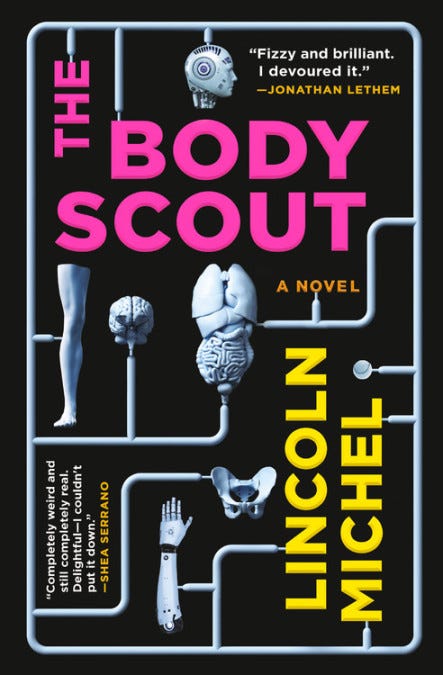Three Kafkaesque Novels from Around the World
Three surreal translated novels about empire, office life, and A.I.
Recently, my friend Michael Barron emailed me with a book recommendation—Kadare’s The Palace of Dreams—and a question: was I still doing book recommendations on Counter Craft? I interview authors with new books out, but it has been a while since I wrote a post praising older, obscure, or translated works. I’m a little embarrassed about that. One of the reasons I created this newsletter is that newsletters are the rare space where you can talk about older books and nice literary topics that most places don’t want to cover.
I’ve always thought book coverage is too focused on what’s out right now. I get it, of course. That’s what publishers are pushing—and what, as an author with a new book, you want pushed—and journals feel they need a reason or “peg” to talk about older works. But every book is a new book to a new reader. Books do not have a release window, like a movie theatrical run, and I imagine most people are more leisurely in their reading habits than they are with other artforms… even if only because books simply take longer to read than an album takes to listen or a movie to watch.
Maybe I’m projecting. Either way, here are three strange books I read in 2024 that have stuck with me. All three are older, translated, and—to give them a bit of a grouping—a certain “Kafkaesque” quality.
The Palace of Dreams by Ismail Kadare
The Palace of Dreams (1981, English translation 1993) is an appropriately dreamy novel about a young bureaucrat in the Ottoman Empire who works for a department that investigates dreams. Mark-Alem comes from the famous Köprülü family—a real-life Albanian noble family with considerable influence in the Ottoman Empire—and has been installed in this position by his family for reasons he can’t ascertain. He can’t understand his job either. Ostensibly, the department seeks to discover dangerous dreams that might threaten the empire. But Mark-Alem is mostly shuffled around between various subdepartments with no clear direction in a labyrinthian palace.
The comparisons to something like Kafka’s The Trial are obvious and fitting, although the novel has a calmer and quieter feeling to me. Mark-Alem seems less trapped in a nightmare than a weird office comedy. (Perhaps this was not intended, as the “About the Author” page says the novel “arose out of Kadare’s long-nurtured ambition to invent a hell of his own”) I quite loved the book, although I will admit that the Albanian nationalism subplot did not grab me as someone who distrusts nationalism.
Of course, much of this is contextual. The novel is not really about the Ottoman Empire, of course, but about Albania under Stalinist oppression. The Communist government found it a lot more shocking than me. The book was censored and Kadare defected to France in 1990.
Oyamada’s The Factory (2013, English translation 2019) is a strange and very short novella that uses surrealism to highlight the absurdity and alienation of modern work. A popular topic these days, but for a reason. (I picked the novel after it was mentioned several times in Tone by Sofia Samatar and Kate Zambreno, itself a short and lovely work I’d recommend.)
The Factory follows a few employees at a sprawling and bizarre factory that seems to do everything and nothing at once. One employee shreds paper all day. Another is tasked with cataloguing all of the moss around the factory grounds. Stranger still are the seemingly mutated creatures that live only at the factory and background characters like the “Forest Pantser” who rips down the pants of visitors.
Candidly, I’m not sure all the pieces quite added up. But a lot of the parts have lodged in my mind and I enjoyed the breezy, bizarre read. Perhaps the perfect novella to read if you’re desperately waiting for Severance to come back on the air.
Regarding “Kafkaesque,” while writing this post a World Literature Today interview with Oyamada came through my timeline. Oyamada says:
As for Kafka, I’ve been influenced by him since my debut (the catchphrase for my first work, The Factory, was “Kafka + Magic Realism?!”). Excellent writers, in my opinion, don’t deviate from reality but make readers notice the deviations and mysteries already contained within their reality.
The Singularity by Dino Buzzati
Buzzati has long been one of my favorite authors. If you haven’t read him yet I highly recommend starting with either the story collection Catastrophe or the novel The Tartar Steppe (more recently translated as The Stronghold). Those are his best works, I think. But The Singularity, which was published in Italian in 1960 and most recently published in English this year by NYRB (translated by Anne Milano Appel), is also quite fun. And timely.
The Singularity is apparently one of, if not the, first serious works of Italian science fiction. The short novel follows a scientist and his wife who are recruited by a government agency for a mysterious project, which turns out to be a gigantic computer that might be a consciousness. Here’s the timely factor: a novel about A.I. written decades before our ChatGPT era. It’s always interesting to see how prior generations imagined modern technology—here, the A.I. is embodied in a series of giant and connected white cubes—and the whole novel shows Buzzati in a highly comic mode. You can read an excerpt here.
All three of these novels are strange, dreamy, and—especially the Buzzati and Oyamada—quite short. If you’re looking for a quick and weird read, you can’t go wrong with any of them.
If you like this newsletter, consider subscribing or checking out my recent science fiction novel The Body Scout that The New York Times called “Timeless and original…a wild ride, sad and funny, surreal and intelligent.”
Other works I’ve written or co-edited include Upright Beasts (my story collection), Tiny Nightmares (an anthology of horror fiction), and Tiny Crimes (an anthology of crime fiction).










Damn it my book anxiety is THROUGH THE ROOF = I just laid out 2025 TBR and now Lincoln hits me with these beauties ... ah well ... I guess the weekly call to the college-bound son must be cut ;)
"The Singularity is apparently one of, if not the, first serious works of Italian science fiction." People think of Primo Levi primarily as a Holocaust writer, which, sure, of course. But he's also got some science fiction from around this time, written under the pen name Damiano Malabaila, though I think Buzzati has him beat for the claim of first by a year or two. In particular there's a series of short stories about a salesman of the strange inventions of the fictional NATCA company.